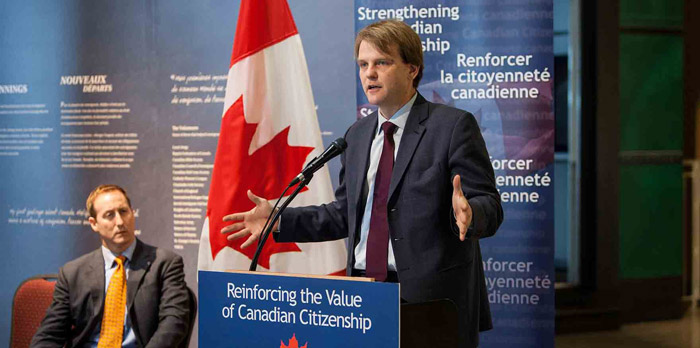The federal government grudgingly restored health-care rights for refugee claimants this week after a court ruling reversing a Conservative overhaul of the system in 2012 that severely restricted the access of asylum seekers to health care.Immigration Minister Chris Alexander stresses that the government will continue to appeal the Supreme Court in order to deny access to health care for asylum seekers once again.
Under the 2012 cuts to the Interim Federal Health Program, refugees could only access care for urgent or emergency situations. Furthermore, refugees classified as arriving from designated countries of origin (DCO)—countries deemed ‘safe’ by Canada—were only granted care if they posed a threat to public health. Ironically, Mexico—one of the most common countries from which refugees come to Canada—is on the DCO list. Under such restrictive regulations, many refugee claimants in need of care were denied access under the cuts instituted in 2012.
It is important to note that this decision only applies to refugee claimants, people who are in Canada while their refugee claim is being processed, but who have not yet been granted asylum. While it may seem that this represents a small group of people who are only in Canada for a negligible amount of time before their applications are processed, in reality, this decision would affect a large number of people. In 2013, over 10,000 people came to Canada to make refugee claims, which can take several years to process. Regardless of whether or not refugee claimants are granted asylum in the end, Canada’s government still bears a moral responsibility to provide care for all asylum seekers while their claims are being processed.
Considering that Canada accepted approximately 37 per cent of refugee applicants in 2013, this decision means that the Canadian government will naturally be providing access to health care to would-be refugees who will later be denied asylum and deported. However, it should not matter whether one is eventually granted asylum or not; all asylum seekers who turn to Canada in times of need should be treated as legitimate cases deserving of our money and care. Those who oppose the decision argue that the distribution of health care to refugee claimants constitutes a misallocation of taxpayer money to claimants who most likely will not even be granted asylum in Canada. While it is true that the health care provisions mean that many denied refugees will have received health care while awaiting the processing of their applications, not providing health care for any claimants means that the 37 per cent of refugees who are actually granted asylum would have been denied access to basic care until they obtained official refugee status. Even if a refugee’s asylum request was denied, this does not mean that they were unworthy of basic access to health care in the interim period while their application was being processed.
Opponents of the program have also stated that the provision of health services would encourage fraudulent refugee claims by people who just want the benefit of Canadian health care for several months, but who are not legitimate refugees. These arguments lack logic and trivialize the many difficulties that refugees must endure simply to arrive in Canada and seek asylum. The journeys that they make, application process, and difficult living conditions in Canada, are all significant hurdles that would likely deter any person from seeking refugee status simply to capitalize on Canada’s health care system.
The current discussion surrounding granting health care to refugee claimants has grouped asylum seekers into two camps—those who are ‘legitimate’ refugees and will have their applications accepted, and refugees whose asylum requests will be denied. The opponents of health care for all asylum seekers are all too willing to deny access to health care to the latter camp—refugee claimants whose applications will inevitably be denied. However, such an approach is misguided and ignores Canada’s moral obligations.
There can be no distinction between ‘legitimate’ and ‘illegitimate’ claimants mainly because it is impossible to distinguish between the two during the processing period. More importantly, though, Canada has a responsibility to protect all asylum seekers during this limbo period when they have n other form of protection from a government.








